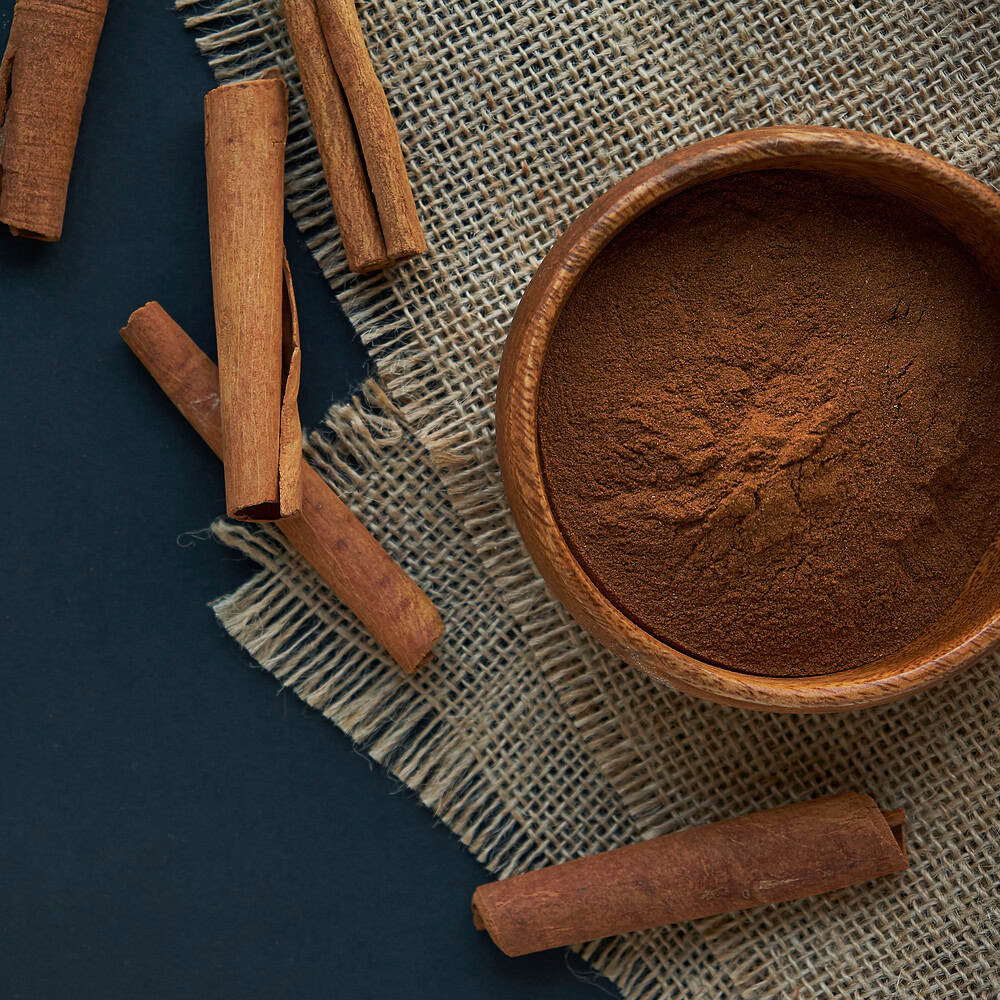Cinnamon might just be the most festive, warming spice to have ever existed, ever – but it comes with plenty of health benefits too.
Here are just three ways this Christmas spice can help your body in the long-term, beyond just being yummy!
1. A tasty way to lower inflammation?
Cinnamon might lower inflammation in the body – that’s according to a randomised control study.
They tested the effects of a blend of herbs and spices, including cinnamon, on 12 men aged 40-65 who were overweight or obese and had at least one risk factor for cardiovascular disease.
It was found that, when they ate they ate meals containing 6g of the spice mix, they had lower inflammation markers in their blood than the same meal with 2g of the spice blend, or no spices.
Connie Rogers, an associate professor of nutritional sciences, Penn State, USA, said: “We can’t say from this study if it was one spice in particular, but this specific blend seemed to be beneficial.”
The spice blend consisted of cinnamon, basil, bay leaf, black pepper, coriander, cumin, ginger, oregano, parsley, red pepper, rosemary thyme and turmeric.
The meals that the men ate were all high in saturated fat and carbohydrates. The authors said separate research had found inflammation could spike after a meal high in fat or sugar.
Rogers said that although it was not clear whether these short bursts of acute inflammation caused chronic inflammation, it was suspected that they played a factor, especially in people with overweight or obesity.
“Ultimately the gold standard would be to get people eating more healthfully and to lose weight and exercise, but those behavioural changes are difficult and take time,” said Rogers.
“So in the interim, we wanted to explore whether a combination of spices that people are already familiar with and could fit in a single meal could have a positive effect.”

2. Better blood glucose control?
Cinnamon may help people with prediabetes improve their blood glucose control and slow down the progression to type 2 diabetes.
In prediabetes, blood sugars are raised but are not high enough for a diagnosis of type 2 diabetes.
In a randomised clinical trial by the Joslin Diabetes Center, Boston, USA, 51 people with prediabetes were given a 400mg cinnamon capsule or a placebo three times a day for 12 weeks.
Those who took the cinnamon supplements experienced reduced prediabetes symptoms, including fasting glucose levels that were closer to normal, and an improvement in their bodies’ responses to eat a meal with carbohydrates.
Corresponding author Giulio R Romeo, MD, said: “These findings provide the rationale for longer and larger studies to address if cinnamon can reduce the risk of developing type 2 diabetes over time.”
If left unaddressed, diabetes raises the risk of developing a range of dangerous disorders.
Symptoms include frequent urination, abnormal thirst, abnormal tiredness, unexplained weight loss, itching around the genitals/thrush, wounds taking longer to heal, or blurred vision.
Anybody experiencing these symptoms should speak to their GP or consult a registered nutritional therapy practitioner who can work alongside a medical practitioner.

3. Turning up the heat on fat cells?
Cinnamon might lessen the risk of cardiovascular (heart and blood vessels) damage from a high fat diet.
That’s the conclusion that the American Heart Association came to in 2017, when it reported that a preliminary study had suggested that cinnamon might activate the body’s antioxidant and anti-inflammatory systems, and slow down the fat-storing process.
Researchers had fed rats cinnamon supplements and a high fat diet for 12 weeks, and found that these rats weighed less and had less belly fat and healthier levels of sugar, insulin and fat in their blood, compared to rats on a high fat diet and no cinnamon.
The cinnamon-eating rats also had fewer molecules involved in the fat storing process, and more antioxidant and anti-inflammatory molecules that protect the body from the damages of stress.
So, when on a high fat diet, these rats fared far better when eating cinnamon too.
Why this was the case is unclear, but it might have something to do with cinnamaldehyde.
Cinnamaldehyde is an essential oil that gives cinnamon its flavour. In a separate 2017 study, researchers investigated its potential benefits for human health.
The authors noted that previous studies had suggested that cinnamaldehyde seemed to protect mice against obesity and high blood sugar, but they didn’t know why.
Researchers tested human fat cells from a diverse range of volunteers and found that cinnamaldehyde appeared to improve health by acting directly on fat cells so they started burning energy.
When the cells were treated with cinnamaldehyde, researchers noticed increased expression of several genes and enzymes that enhance the breakdown and storage of fats for energy.
Jun Wu, a research assistant professor at the University of Michigan Life Sciences Institute, USA, said: “Cinnamon has been part of our diets for thousands of years, and people generally enjoy it.
“So if it can help protect against obesity, too, it may offer an approach to metabolic health that is easier for patients to adhere to.”
However, while a little cinnamon can be a tasty addition in cooking, Wu warned that further studies were needed to find out how to harness cinnamaldehyde’s benefits without adverse side effects.
Stuck for ideas?
Here are some cinnamon recipes!
Enjoyed this article?
What to eat to boost your winter immunity
For articles and recipes subscribe to the Optimum Nutrition newsletter
Discover our courses in nutrition






